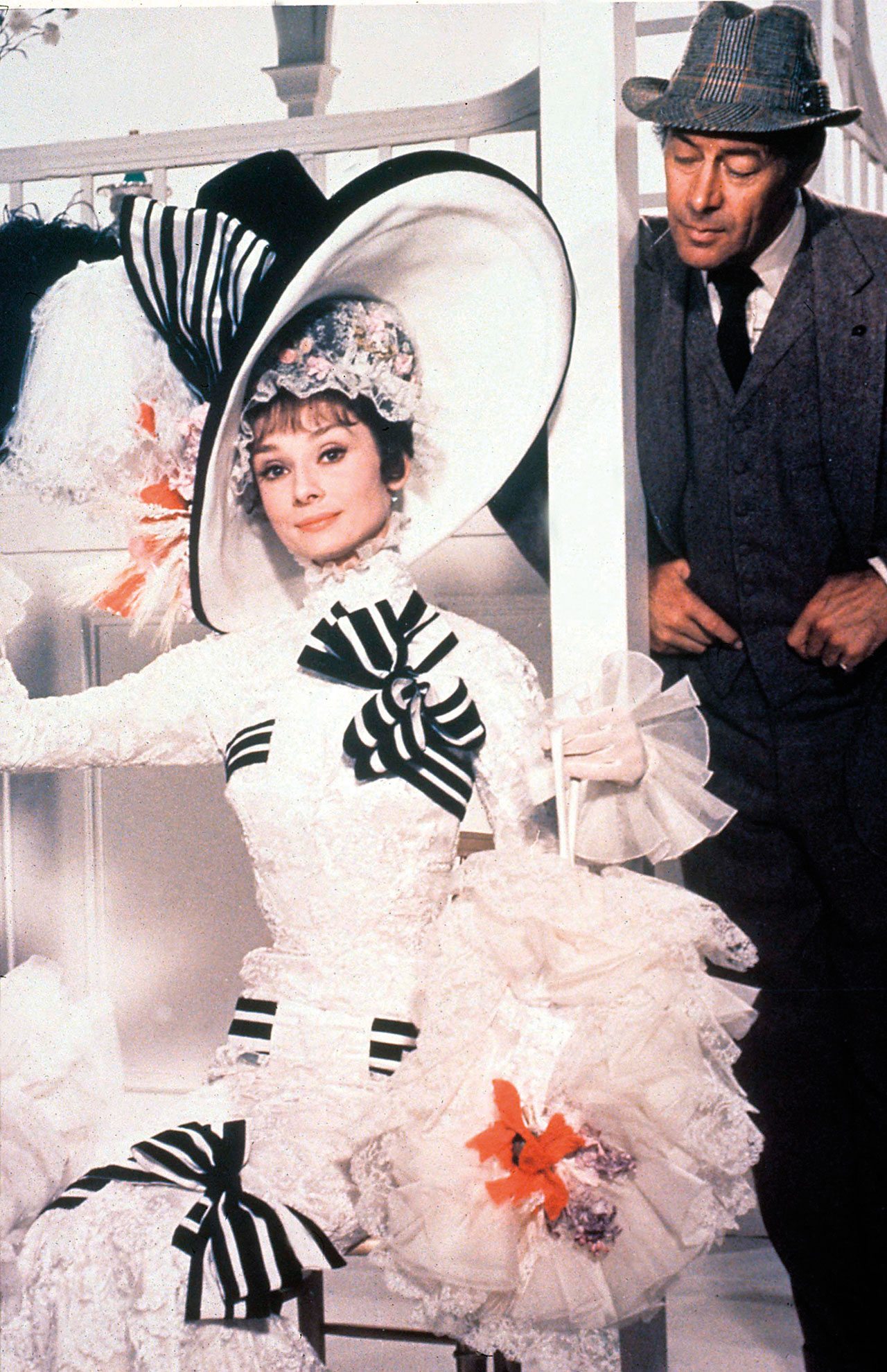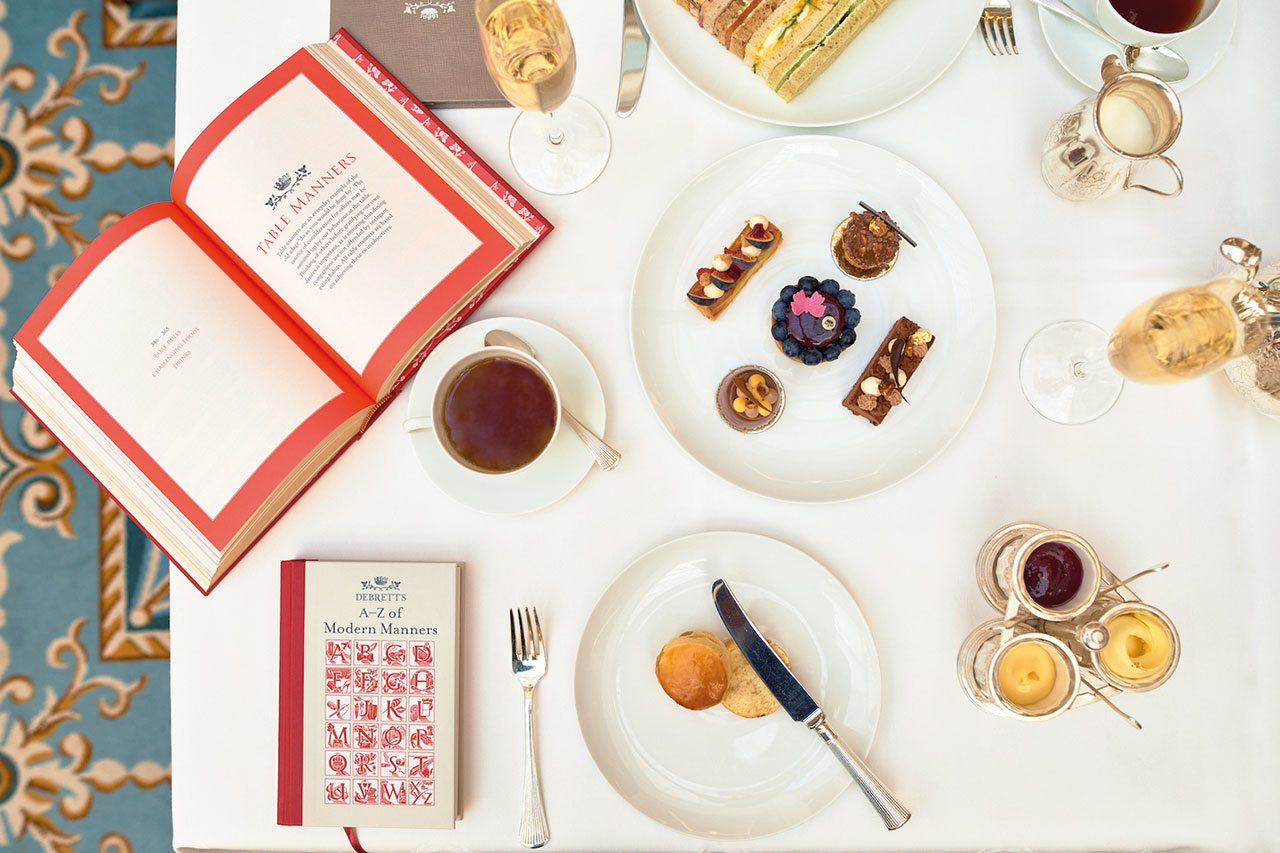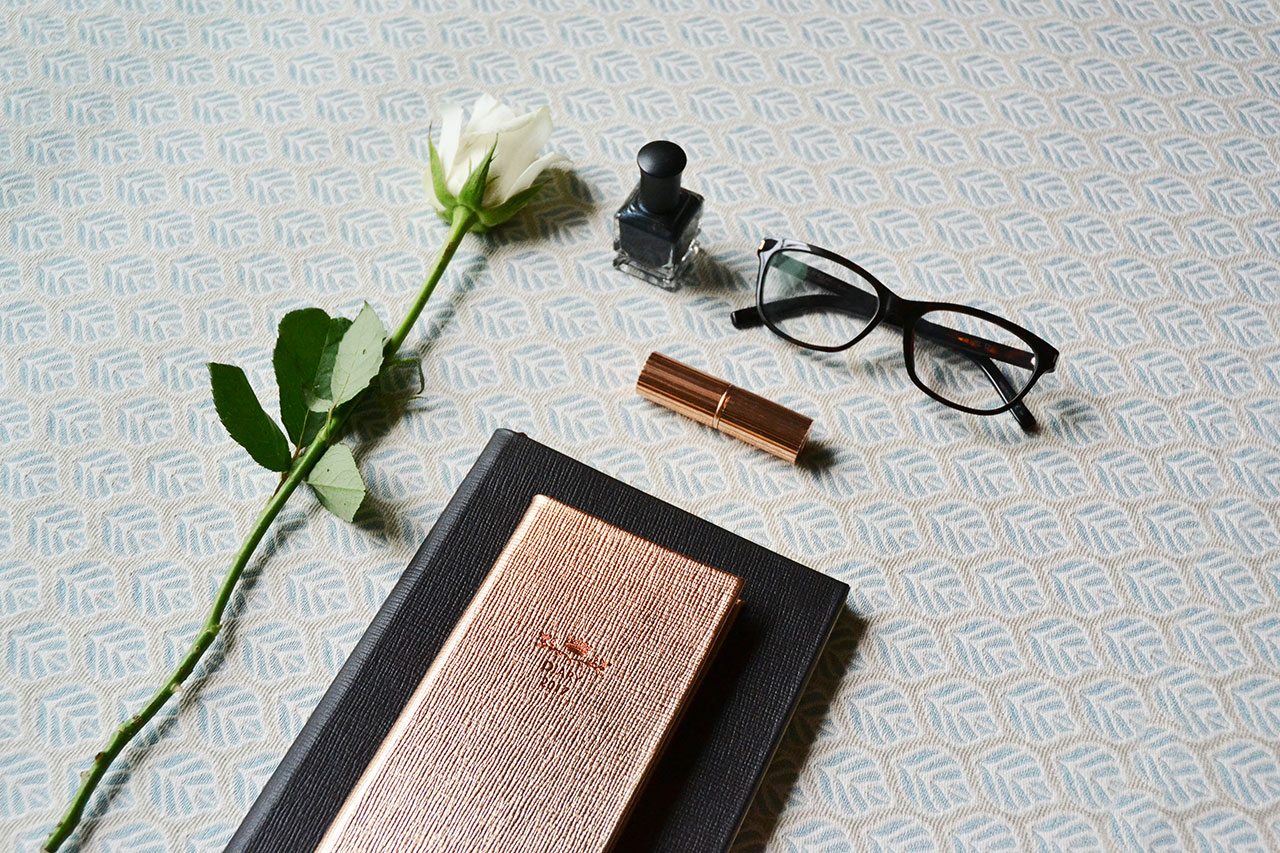Do Manners Still Maketh Man?
How does an etiquette guide have any traction in today’s post-truth, Trumpian world? Joseph Bullmore finds out
This post may contain affiliate links. Learn more
Joseph Bullmore heads to The Lanesborough with Debrett’s to be taught the modern rules of etiquette for the gentlemen of today.
When you sit down to tea with an etiquette expert, you suddenly become very aware of your body. Not of its size or shape (though those are low-level anxieties at most hours of the day), but of what it’s doing. Are my legs too widely splayed? Am I nodding my head enough? Is my side parting too theatrical? How dry are my palms? And that’s before you get to the clothes: that morning I had toyed with a double-breasted midnight blue (sounds so much better than ‘navy’, doesn’t it?) blazer, telling myself, ‘This is The Lanesborough, after all,’ over and over again in the mirror.
But, in the end, I chickened out and plumped for an open collar shirt under a navy (see?) cardigan, made doubly wince-worthy when I set eyes on my guide Rupert’s perfectly proportioned tie. (Cruel fate: I’d left a Balmain number on the rack at home which would have paired beautifully with these miniature walnut whips.)
What is etiquette today?
This cavalcade of second-guesses comes, on this occasion, courtesy of Debrett’s, the arbiter of social standing and manners that you’ll have filed in your memory library next to The Wisden Cricketers’ Almanack, Who’s Who and ‘Things older than America’. I’ve come to meet one of their number for tea in the grand, duck egg blue dining room of The Lanesborough hotel, Knightsbridge. Daunting doesn’t quite cover it.
As it turned out, I needn’t have worried a jot. Within five minutes of sitting down with Rupert Wesson – the beaming Academy Director over at the esteemed publishing house – I learn what I probably should have guessed. That etiquette today really isn’t about rules, or diktats, or how many breasts on your blazer – it’s about feeling comfortable in yourself, and making others feel comfortable in the process.
‘It’s really just about emotional intelligence, about sensing the right thing to do at the right moment,’ says Rupert, a sparkling former army officer and a combination of ‘complete best man’ and ‘the uncle you never had’. Soon, he is whisking me through the course that The Lanesborough and Debrett’s offer to those looking to brush up on the details: chiefly incoming foreign businessmen and dignitaries, he tells me – the kind of culturally-conscious people who don’t want to torpedo a business deal or an embassy flesh-pressing by doing something silly with someone’s daughter. But Rupert’s guests also flock to Debrett’s for reasons much less tangible and altogether less punchy-daughtery: the hope, I suspect, that some sort of powdered Britishness might rub off on them; a magic dust made of charm, style and poise, of Wimbledon and Prince Harry and ingenious small talk.
First impressions
We begin, of course, with first impressions. ‘You usually get a pretty reliable idea of someone in the opening seven seconds,’ says Rupert. Thankfully, he goes onto explain, seven seconds is a long time in politics (and board meetings, dinner parties and first dates), so there’s a lot you can do to make your mark. A combination of good posture (upright but relaxed), natural body language (open but not needy) and a canny greeting (a good, firm handshake combined with a smile and as little ogling as possible) will all stand you in very good stead.

My Fair Lady – rex features
Then there’s the minefield of small talk and acceptable topics of conversation (weekend plans and upcoming projects good; voting habits and thigh gaps bad) and the limits of personal space. If in doubt, Rupert reminds me, just take a moment to see what those around you are doing. (Good advice for any occasion, I suspect, from tea with the Finnish High Commissioner to an impromptu sauna disco. Which might well amount to the same thing, come to think of it.)
It’s about now that I realise how useful this sort of thing might be for even the most dyed-in-the-midnight-wool Englishman. I’m particularly heartened by Rupert’s reminder of the ‘virtuous cycle’ of confidence: if you act confidently (which may be as simple as standing up straight and not crying) then you’ll trick your brain into feeling genuinely so. And if you can convince other people that you’re feeling genuinely confident, they’ll reflect it back on you like one of those very flattering fairground mirrors, which, in turn, will make them more at ease, and so on and so forth until everyone in the room is convinced that they’re Moonraker-era Roger Moore on a particularly good hair day. It’s one of those things we all sort of know, but could do with being reminded of now and again: that no one can make us feel awkward without our consent.
How to make a good impression
Equally valuable is the Hardy Amies quote that Rupert advocates as the last word on menswear: ‘A gentleman should look as though he has chosen his clothes with intelligence, put them on with care, and then forgotten all about them.’ We work through the cryptic-crossword that is the modern dress code (more essential than you’d imagine, actually: Rupert tells me of one influential Japanese businessmen who arrived at a merger negotiation in a Daffy Duck tie), before rattling through the Social Season like a triple divorcee in the market for a new pool house.
By the time we sit down to lunch in the gorgeous, light-drenched dining room at Céleste, I’m convinced that Debrett’s ought to have its own wing over at the Department of Education so that we can mainline this stuff wholesale into our children’s heads before they start having ideas of their own. And, sure enough, as the plates roll in three at a time – a melting beef short rib here, a beautiful, ink-black squid risotto there – our conversation does turn to the political (these were the last days of 2016, after all. I also think the Barolo had something to do with it).
It’s big talk for the masters of the small stuff, but it seems just about okay. Because, really, Debrett’s isn’t concerned with embarrassing cutlery or the proper way to address a viscount’s second wife (don’t, in my experience), what it really cares about is how we can be nice to one another, especially when we don’t have a single thing in common; about getting the details right, making everyone feel at home. Alien concepts, I know. As distant today, in fact, as spats and dance cards and the hierarchy of oyster forks. Debrett’s isn’t relevant anymore – and that’s exactly why it’s so important.
A Guide To Social Etiquette & The Season includes lunch at Céleste, a six-hour Debrett’s course, and an overnight stay at The Lanesborough. From £1,875pp.
MORE CULTURE: Is High Culture a Luxury, or a Necessity? / Real Men Like Pink – The Current State of Masculinity / Why you Should be Collecting Art in 2017


